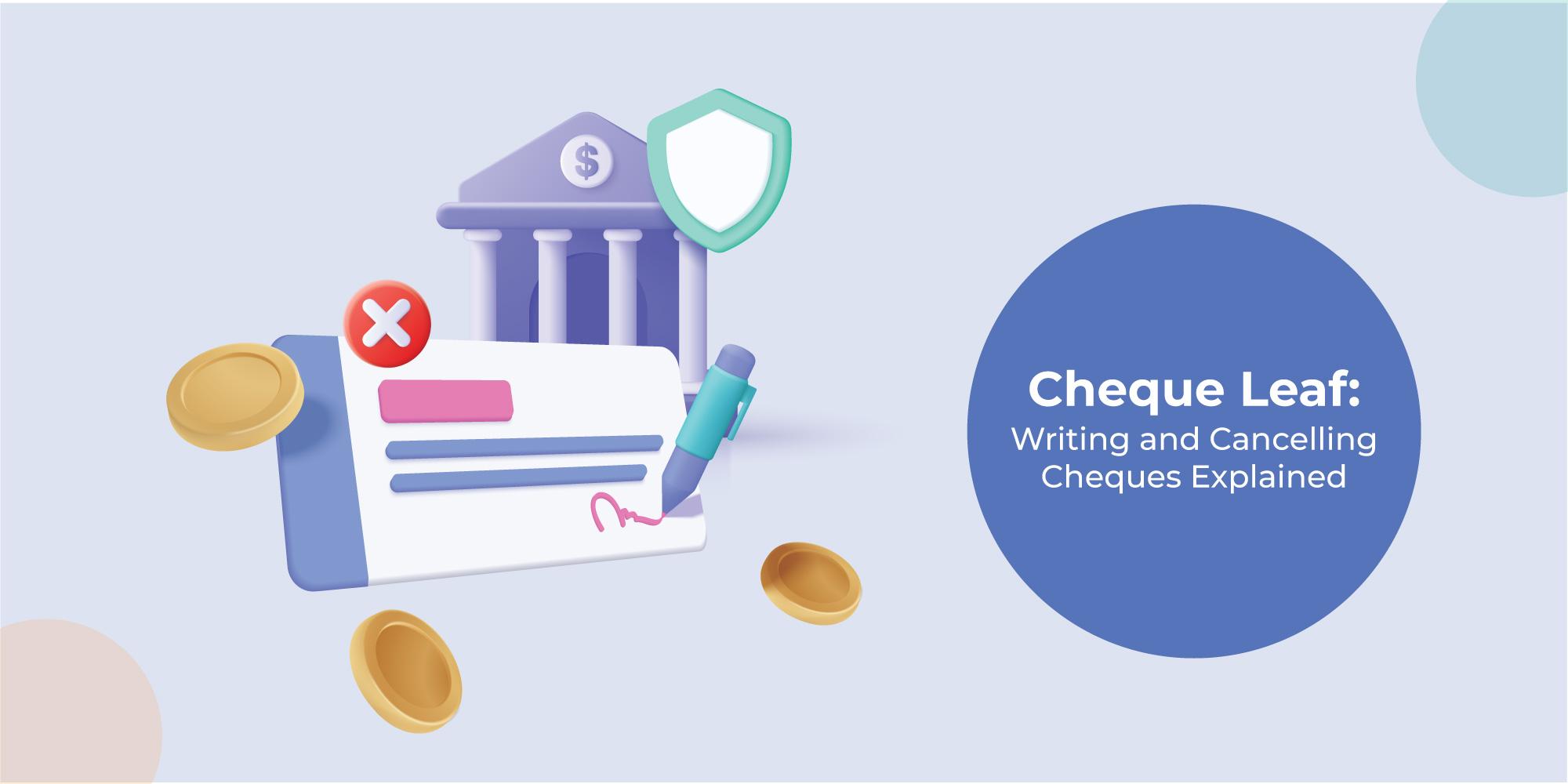
A cheque leaf is a primary financial instrument for all account holders and banks provide a chequebook when you open an account. Understanding the cheque leaf meaning is essential to using it. It is necessary to know the validity of a cheque leaf, the process of filling it out and more to make the best use of it.
Before digitisation in the financial industry, cheque leaf was a popular and convenient way to make non-cash transactions. Many still prefer to transact through this method. This is especially common in rental payments.
Read on to learn how to fill a cheque leaf, its types and other pertinent information and how to write a cancelled cheque?
A cheque leaf is a single cheque in your chequebook. Understanding the meaning of the cheque leaf can help you use it effectively. You can use it to:
When you write a cheque, the bank instructs you to debit your account and credit the payee’s account mentioned in the cheque.
A cheque leaf serves multiple critical purposes in financial transactions. Understanding its purpose can help you make the most out of this financial instrument:
The purpose of a cheque leaf is important to understand as it enhances the efficiency of your financial transactions.
Read about: Best banks for saving accounts in 2023
Follow this process to fill a cheque leaf:
Different types of cheques you should know about are mentioned below. Remember that each has its format and various purposes for which it is used.
How to write a cancelled cheque? To cancel a cheque leaf:
Ensure you do not overwrite a cheque, as the bank may consider the same invalid. Handling a cheque carefully and using the correct signature when you write one is also essential.
You can use a cheque to pay your loan EMIs, credit card bills, etc. If you want immediate funds at affordable interest rates, you can apply for an Instant Personal Loan from Fibe.
We offer amounts ranging up to ₹5 lakhs at a starting interest rate of 2% per month and tenure going up to 36 months. Download our Personal Loan App or visit our website and apply online with minimal formalities and instant access to funds!
The cheque number is mentioned at the bottom left of every cheque leaf. It’s the first 6 digits usually mentioned before the 9-digit MICR code.
You cannot write a cancelled cheque online; you must take a cheque leaf from your book. That said, you can cancel check leaf online by contacting your bank.
Add the same amount in numerals in the respective box on the right side of the cheque. After writing the amount in numerals, write it in words in the designated line available next to the word ‘Rupees.’ When writing in words, start from the extreme left side and add ‘only’ after completing the amount.
Yes. Banks are authorised to provide chequebooks containing cheque leaves to their customers after opening accounts. However, banks will not issue individual cheque leaves to customers.
You can get a chequebook online by placing an online request on the bank’s net banking portal or the app. However, you will not get individual cheque leaves online.
Cheque leaves don’t come with an expiry date. The validity of a cheque leaf starts from the date it is drawn and is generally 3 months.
Both are similar and there is no difference. A single cheque from your chequebook is known as a cheque leaf.